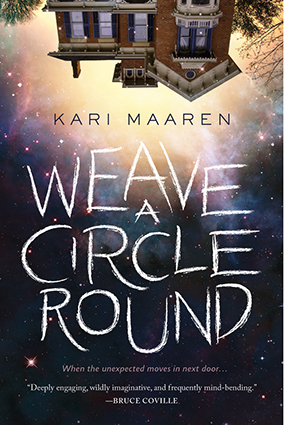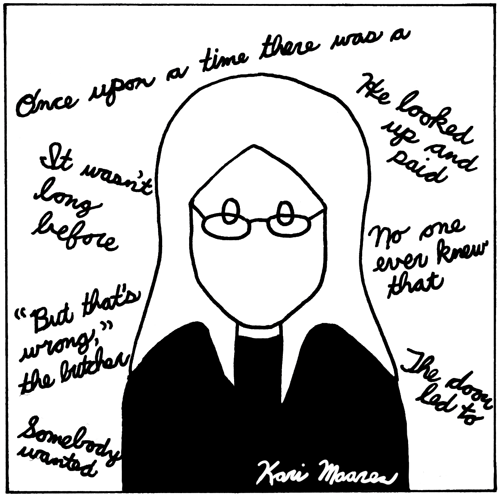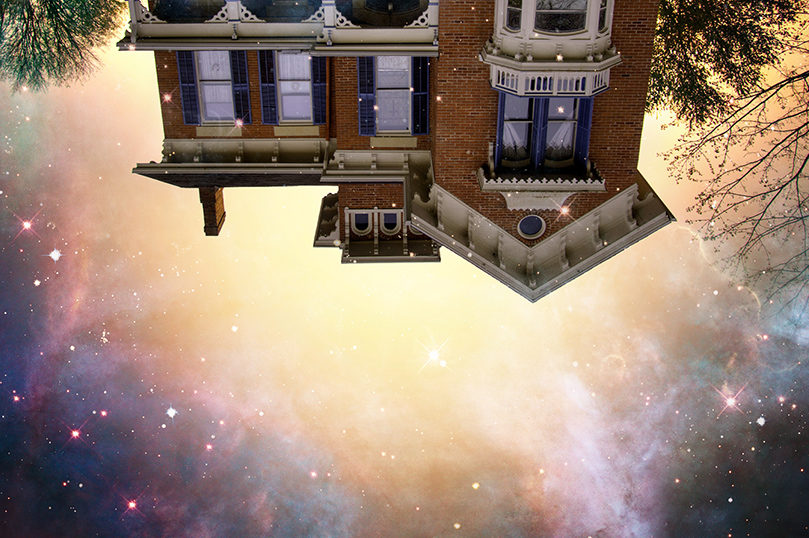 Written by Kari Maaren
Written by Kari Maaren
When you’re a debut author, everyone assumes you’re writing like mad. You should be writing like mad. You defeated the odds and got your work accepted by a publisher, right? So where’s your follow-up? Have you hauled out six trunk novels and polished them? Are you working on a sequel? Two sequels? A brand new novel in a different genre? Seventeen short stories, all of which you’re sending diligently out to magazines at the speed of light? How energised are you? And how’s that panic doing? You’d better get something done. You don’t want people to forget about you, do you? You don’t want to drop off the radar. How’s your writing? I bet it’s good. I bet it’s amazing. Where is it?
I haven’t finished a novel in seven years.
This essay probably isn’t going to go where you think it’s going to go. It’s not a story of high expectations and anxiety and the sophomore slump. It’s a story of grief.

I wrote Weave a Circle Round in 2010 and edited it until the summer of 2011. In the spring of that year, my mother was diagnosed with Alzheimer’s disease. We—my father, my sister, my sister’s young family, and I—had suspected for a while that this diagnosis was coming, but the anticipation was nothing compared to the confirmation. The summer in which I completed the initial edits on my novel was a summer I spent sad and scared and furiously angry. I screamed at people who didn’t deserve to be screamed at. I burst into wrathful tears when I couldn’t find a friend’s apartment building. I’d experienced grief before, but this was new. This was like being tortured by the universe. And the worst bit was that it wasn’t actually me the universe was torturing. It was my wonderful mum, who didn’t deserve what was happening to her and who was herself sad and scared and angry to a degree that dwarfed my own feelings. And because I didn’t even live in the same place as her—my parents were, at the time, living on what was basically a road through a forest on Vancouver Island—I couldn’t even be there to comfort her or my dad. My mum was losing pieces of herself, and I wasn’t there.
At the time, I didn’t realise what was happening. I thought I was in a bad state, but surely I would still be able to function to some degree. And I did. I kept on at my comics. I started writing and performing music on a regular basis, and as the years went by and my mother’s disease progressed, I even produced a couple of CDs. I shopped out my novel to publishers. And I wrote. I did write. I just didn’t finish a single story. I started a sequel to Weave a Circle Round, and I got halfway through before I stopped. The story wasn’t working. There were too many characters. I’d chosen the wrong character to be the protagonist. The story was going on and on without getting anywhere. Years later, after I’d got my acceptance from Tor, and there was suddenly a lot more urgency in the air, I tried again with another novel, then with a novella. With the novel, I got several chapters in before I lost the thread. With the novella, I again got halfway through. I knew I had to write, but my mind was blank. I’ve always loved going for walks because I imagine out stories while I’m doing it. Now I couldn’t. I would go through spurts where everything seemed normal again, but the blankness would always return.
And my mum was getting worse. She declined by leaps and bounds. She was miserable; she understood what was happening to her, even towards the end, and she hated it. We all knew it. Even as our lives went on—even as my sister’s family grew and moved to a new city, and my parents followed her to a province they’d never lived in before, and my niece and nephew shot up into small human beings, and I pumped out comics and music and taught my students about thesis statements, my mother’s life was on a strange pause we all knew would never end. She would never get better. She would always, in a way, be unfinished.
Grief is weird. You don’t necessarily know it’s happening when it is. It doesn’t wait until after someone dies to pounce; it gets its claws right into you while the person for whom you’re grieving is dying. My mother died on December 16, 2016, with her family around her, but we mourned her for years before that. The mourning continues. It’s different now. It’s for our loss, not for hers. For over half a decade, we watched her lose more and more even as she desperately clung to what she still had. “My guy,” she would say to my father in the last few months, when she had hardly any words left, when she didn’t know who or where she was. The last thing she clung to was what she had loved.
I sometimes feel guilty or inadequate that I haven’t finished any writing in years. I’m letting myself and others down. Writing is what I’ve always done and what I’ve always wanted to do; I’m not wholly me without it. But I think I’m going to have to accept that seven-year pause as something that needed to happen. I’m writing again now. This summer, I completed the first draft of a new novel. When I go out for walks, I find myself spontaneously thinking out stories, imagining my way through the scenes, just as I used to. Grief is still everywhere, but it’s a different kind of pain. And one of the new novel’s major characters is the protagonist’s mum.
It was painful, but still wonderful, to finish her story.
Order Your Copy
Follow Kari Maaren online on Twitter (@angrykem), Facebook, or on her website.












Heart-wrenching piece. I know I myself wouldn’t be able to speak about such a topic when less than a year has passed. Much less write a story about it. Wishing you well in your future endeavors.
Thanks, Alexander. The essay was both hugely difficult and oddly easy to write; it all came out in a flood. I still can’t read more than a few words of it without crying, but I had to write it. It felt like the right time.
Very powerfully written. Your story reminds me of a dear friend who went through the same. It is so hard to watch those we love disappear inside themselves. Im glad you’re writing again. I lost my mother when I was quite young, 11, and it still aches, but writing has helped me learn to cope. I look forward to reading your novel.
Thanks, Johannus, and I’m very sorry for your loss. The hurt never really goes away, does it? Alzheimer’s is definitely a cruel disease; it’s unbearable to see someone fading away bit by bit even while she fights desperately to remain herself.
Thank you for sharing this. I identify with so many elements of your experience. My mother had a brain tumor and watching her brilliant mind decline will haunt me forever. It took me eight and a half years to write something and finish it. Grief is an undoing like I can barely describe, and installs itself in unique ways for someone who creates. This is an awful club, but I support your work and writing about/in/through it.
Thanks, Tracy. It really is a terrible club to belong to: a club you never realise exists until you gain membership. I’m very sorry to hear about your mother. I find one of the hardest things now is struggling to remember Mum the way she was before the Alzheimer’s. I sometimes dream about her as she used to be, and I wake up in tears.
I’ve had dreams where I wake up in tears, as well! Sometimes they are about preventing my mother’s illness or death, or about how she just has to manage her illness and is still living. The psychological wounds are intense.
Yes…it’s strange the way our minds work. In my dreams, my mother is sometimes fine, and she sometimes has Alzheimer’s. I dream a lot about her hugs. They were wonderful hugs.
tanks for information sharing
Thank you for writing this. I’m so sorry for your loss. I haven’t experienced grief like this, but I had to deal with years of my writing life being stolen away by chronic illness, and accepting that while I was never going to get those years back, that gap did not make me lazy and it did not mean I was done being a writer. I really appreciate your bravery and your affirmation that there is a way through crisis and back to creativity.
I’m very sorry to hear about your situation. And yes, there’s a way back. Sometimes those frustrating gaps are necessary.
My father is in steady decline for Alzheimer’s — stage 6 on the 7 stage scale — and I’ve been struggling with my writing lately. I just never thought of the possibility of my dad’s decline affecting my writing…
This is a new thought. We have yet to reach the ultimate completion of his suffering, but your words left a light in my heart. Thank you.
It’s an incredibly hard thing to go through. It consumes every aspect of your life, even when you think you’re fine. I didn’t initially realise my mum’s decline was affecting my writing either; it’s harder to see when it’s actually happening to you.
I’m sorry to hear about your father, and I hope your family has some support.
While my situation was pretty different (lost my brother, not mother, it was cancer, it was 2008, I actually finished my novel in the summer after, and nothing since then), I am still finding a lot of resonance here. Good piece. I’m so sorry.
Thank you, Jasmine. I’m sorry to hear about your brother.